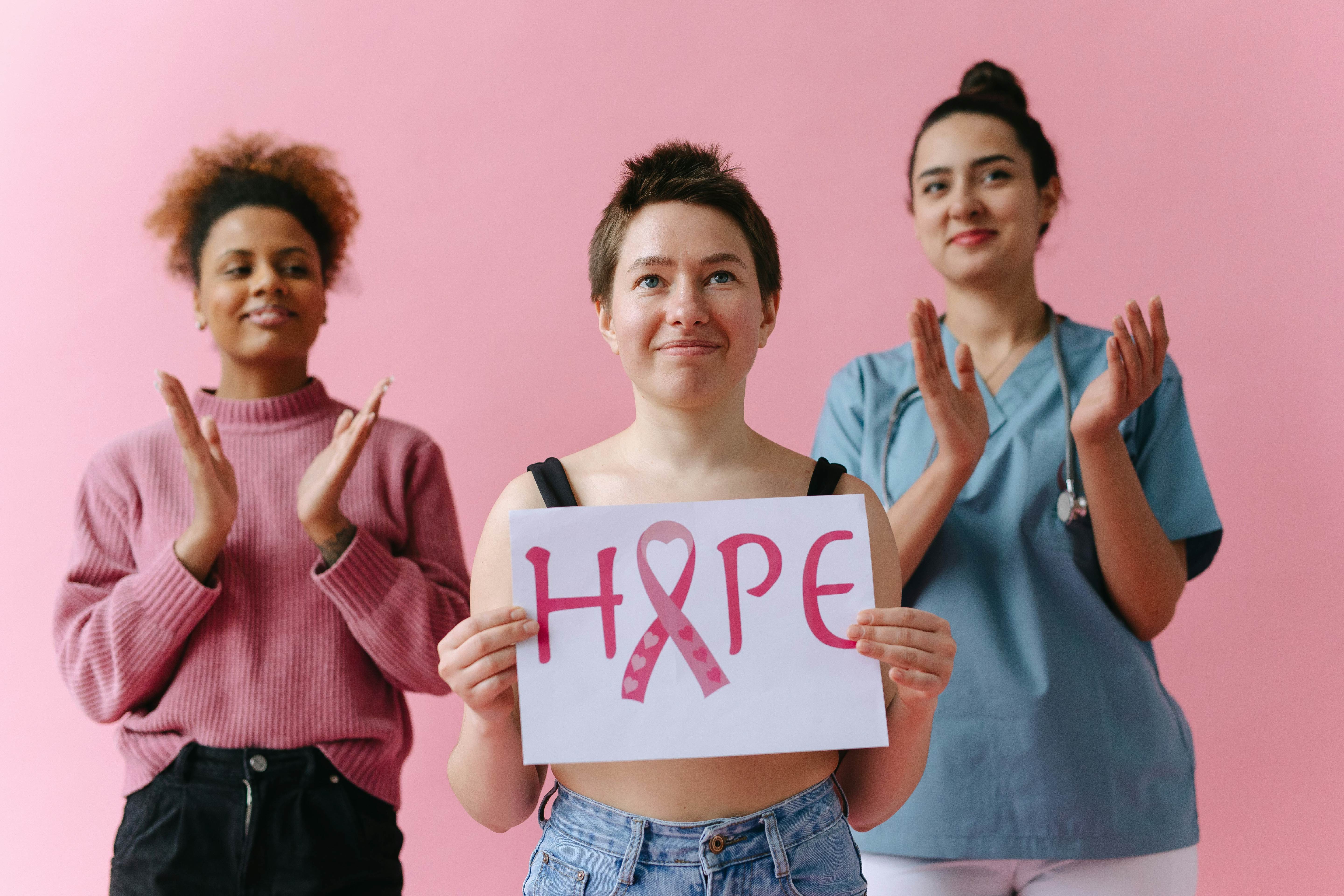By: Victoria H
During October, everything becomes clad in pink for Breast Cancer Awareness Month. Companies are releasing special-edition versions of products and people are adorning the prominent pink ribbon. Communities worldwide are coming together to honor those affected by the disease, provide support, and further educate themselves about this disease. It is important to know the basics about breast cancer, how to identify it, and how to prevent breast cancer to the best of our ability!
What exactly is breast cancer? Breast cancer occurs when an abnormal group of cells grows uncontrollably in breast tissue. When left unchecked, it can spread to other parts of the body and be life threatening. According to the World Health Organization (WHO), 2.3 million women were diagnosed with breast cancer worldwide in 2022. The severity of breast cancer depends on 4 stages. Stage 1 typically means the tumor is small and localized, while Stage 4 indicates the cancer has spread to other organs. Each stage shapes treatment decisions and survival outcomes. The earlier you detect the cancer; the sooner you can start treatment and have the best possible outcome!
Who is most at risk? It’s common to assume that only older women face breast cancer. In reality anyone who has breasts and who has experienced puberty is susceptible to developing breast cancer. Men and women of all ages are candidates. While very uncommon, the WHO documents about .5-1% of diagnoses are of men. It is true that risk increases with age, but other factors may contribute. Genetic factors play a big role in developing breast cancer. Specific mutations of the BRCA1 or BRCA2 gene, a family history of breast or ovarian cancer, and reproductive history of early menstruation or late menopause increase your risk. Your personal health habits regarding obesity, alcohol use, and smoking also increase your risk of developing breast cancer. Environmental factors beyond your control like radiation exposure also affect your susceptibility.
What can you do? While there is no guarantee of prevention, there are certain lifestyle habits to reduce your risk. Staying active, healthy, and even breastfeeding can lower the odds. The Breast Cancer Research Foundation states that women who breastfeed have a significantly lower chance of developing breast cancer. The longer you breastfeed, the better!
The most important way to prevent breast cancer is to know your own body. The WHO recommends performing a self-breast exam at least once a month to help you notice any changes in the breast. Keep a look out for unusual lumps, dimpling of the skin, redness, nipple discharge, or any changes to breast shape. Not all lumps and abnormalities of the breast are cancerous, but it is well worth it to get it checked out as soon as possible!
It’s important to trust yourself! If something doesn’t seem right, schedule a visit with your doctor immediately. You can log onto your insurance company’s website and search for doctors closest to you that accept your insurance. Routine screenings, like mammograms, are offered after 40 by many hospitals and community health centers. Some nonprofits provide free or low-cost mammograms for those without coverage. The Center for Disease Control’s website allows you to search for free screening facilities in your state. It’s so helpful to be prepared and know what resources are available to you and your community.
This month provides a beautiful reminder to educate yourself and others about breast cancer. Don’t hesitate to engage in the cause! Visit your local library, join support groups on social media, and look up local events that you and your family can enjoy. We are strongest when we come together and create a culture of support and vigilance.
Awareness is very powerful, but prompt action can save lives. Remember not to hesitate if you have any health suspicions. Safeguarding your own health ensures that you are here to live and love for years to come. As you carry on your day-to-day responsibilities, don’t forget to prioritize your own health. You deserve it!

